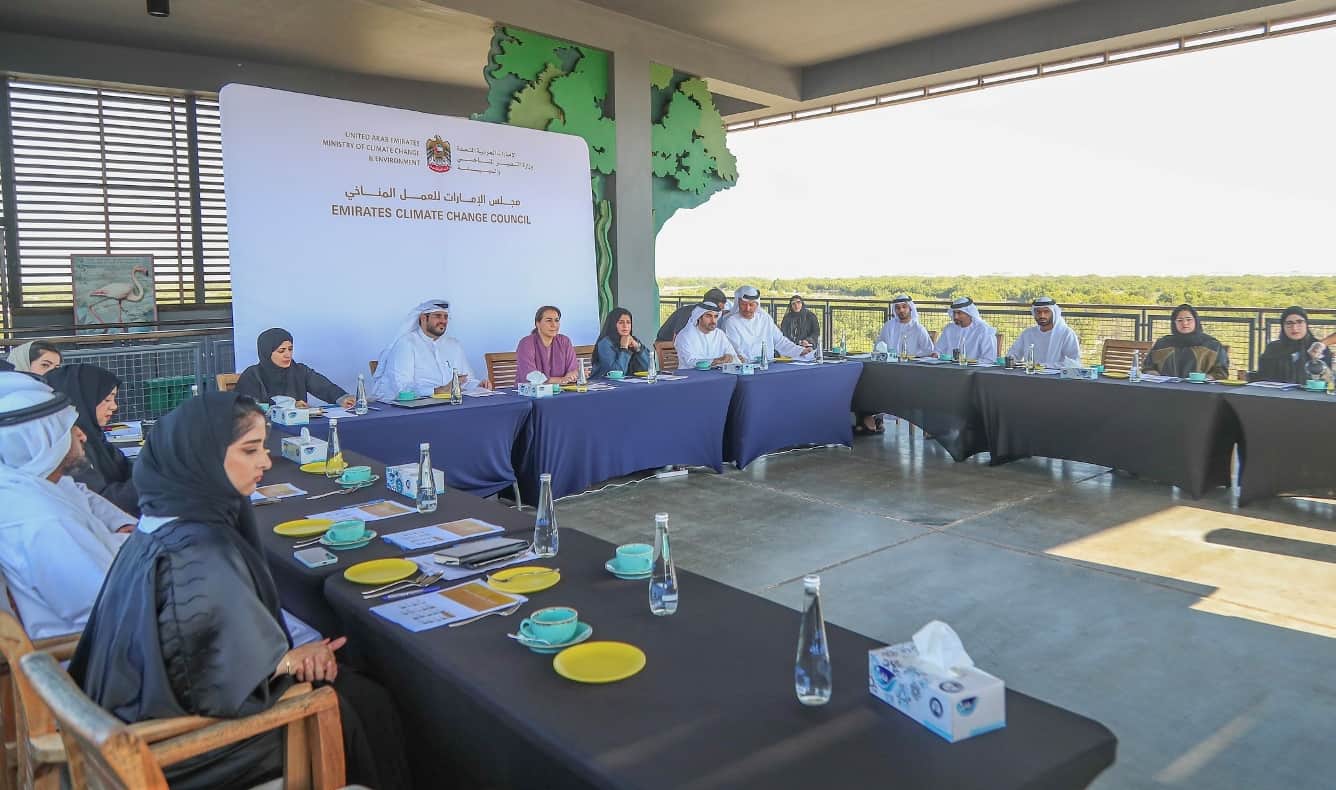ABU DHABI, UAE – UAE Ministry of Climate Change and Environment (MOCCAE) launched the roadmap for the National Carbon Sequestration Project, which aims to plant 100 million mangroves in the country by 2030.
This is as part of its efforts to implement the UAE’s strategic initiative to achieve Net Zero by 2050.
The announcement came during the second UAE Climate Change Council meeting, held on Jubail island in Abu Dhabi, and included a field tour for the Council members of the mangrove sites in Jubail Park.
The project is part of the strategic directions of the UAE to increase reliance on nature-based solutions in facing environmental challenges, and to enhance efforts to capture carbon dioxide to mitigate the effects of climate change and enhance adaptation capabilities.
Minister of Climate Change and the Environment Mariam bint Mohammed Almheiri said, “Strengthening climate action efforts and achieving net zero by 2050 represents a strategic priority for the UAE.”
She said, “It is being implemented through partnership, coordination and cooperation between the government and private sectors to adopt solutions that support reducing and offsetting emissions.”
She added, “To advance and accelerate this cooperation, we focus on nature-based solutions to achieve two very important benefits; contributing more effectively to achieving net zero, and strengthening efforts to protect ecosystems and biodiversity.”
The minister said, “Through the expansion of mangrove forest areas at the national level, the National Carbon Sequestration Project in the UAE is one of the most effective nature-based solutions in facing the challenge of climate change because of its many environmental benefits.”
She added, “Therefore, the country – thanks to the vision of the wise leadership – raised its ambition regarding the targeted number of mangroves from 30 to 100 million trees by 2030.”
The National Carbon Sequestration Project roadmap includes four activities: evaluating mangrove planting sites, producing mangrove seeds and seedlings, a program for planting seeds and seedlings in selected sites, and monitoring and following up on planted mangroves and the levels of carbon that will be captured.
To enhance efforts towards achieving this ambitious goal by 2030, the MOCCAE is working with its partners within an integrated system to implement project activities through cooperation with government and private sector institutions and international non-governmental organizations.
Many studies and scientific research indicate the high effectiveness and enormous ability of mangroves to absorb and capture carbon up to four to five times greater than wild tropical rain forests.
Healthy mangrove ecosystems are a safe natural habitat for marine biodiversity, as 80 percent of global fish populations depend on them.








